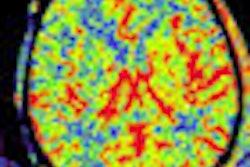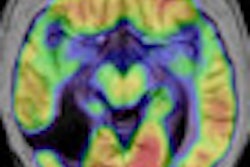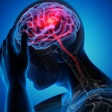
LONDON (Reuters Life!) - British scientists say they have uncovered how the human brain responds to jokes -- research that could help determine whether patients in a vegetative state can experience positive emotions.
Scientists from the Medical Research Council's cognition and brain sciences unit used functional magnetic resonance imaging (fMRI) to watch and compare what goes on in the brains of normal people when they hear ordinary sentences and funny jokes, including puns.
By scanning the brains of 12 healthy volunteers, they found that the reward areas in the brain light up to a much greater degree when processing jokes than when processing normal speech. In the study, this reward response increased in line with how funny the participants found each of the jokes.
"We found a characteristic pattern of brain activity when the jokes used were puns," Matt Davis, who co-led the research, said in a statement. "For example, jokes like 'Why don't cannibals eat clowns? Because they taste funny!' involved brain areas for language processing more than jokes that didn't involve wordplay."
He said that response differed again from nonfunny sentences that contained words with more than one meaning.
"Mapping how the brain processes jokes and sentences shows how language contributes to the pleasure of getting a joke. We can use this as a benchmark for understanding how people who cannot communicate normally react to jokes," he added.
Davis's team, whose work was published in the Journal of Neuroscience on June 28, said this research could possibly be used to help find out whether someone in a vegetative state can experience positive emotions.
"We've previously used fMRI to detect language comprehension in vegetative state patients who can't communicate in any other way," said Tristan Bekinschtein, who also worked on the study.
"We could now use similar methods to look for positive emotions in these patients. This is very important for the families and friends of these patients, who want to know whether they can still experience pleasure and laugh, despite their adversity."
Source: http://bit.ly/jZzrWc
J Neurosci 2011.
Last Updated: 2011-06-29 17:33:09 -0400 (Reuters Health)
Copyright © 2011 Reuters Limited. All rights reserved. Republication or redistribution of Reuters content, including by framing or similar means, is expressly prohibited without the prior written consent of Reuters. Reuters shall not be liable for any errors or delays in the content, or for any actions taken in reliance thereon. Reuters and the Reuters sphere logo are registered trademarks and trademarks of the Reuters group of companies around the world.



















